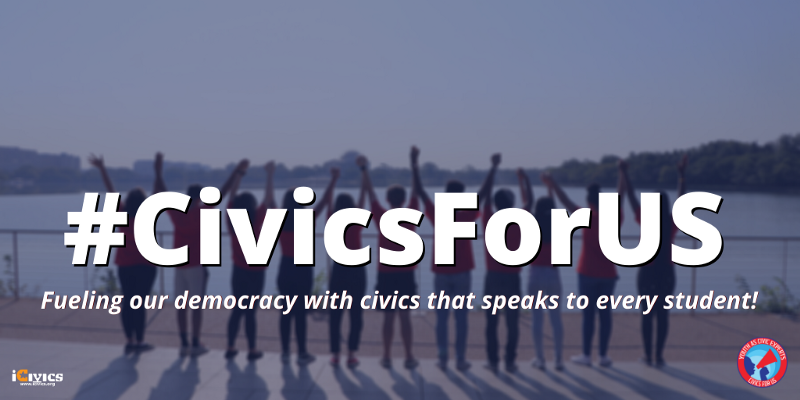
Amidst what has been a tumultuous past few months in politics, there is an opportunity for teachers to weave current events into their curriculum and deepen students’ understanding of US politics, government, and civics.
Civic educators can use the final months of the Trump presidency to teach students the importance of civic processes.
Though unfounded, the former president’s allegations of election fraud can be a good starting point for a lesson on American elections. Mr. Trump’s claims have already prompted everyday Americans to examine the role states, private corporations, and the federal government play in facilitating elections, and that examination can be utilized in the classroom for students’ educational benefit. Mr. Trump’s attempted manipulation of the US election system — where states facilitate voting efforts and the US government confirms election results to determine who becomes president — can also be a real-world example of the importance of federalism in decentralizing political power.
The 2020 election also provides ample opportunity for a discussion on election history and contemporary voter disenfranchisement. The president’s claims of election fraud — which centered on major US cities with large minority populations — are the latest in a long line of minority disenfranchisement and can be used as a conduit to discuss how various groups of Americans have fought for suffrage. Additionally, the prevalence of mail-in ballots in the past election has sparked a debate about how best to expand access to those who are still left out of the electoral process; integrating that debate into civics curricula would challenge students to put their understanding of elections into practice by imagining their ideal electoral system.
Moreover, Mr. Trump’s refusal to concede the election and the subsequent Capitol insurrection on January 6 are meaningful real-life examples of the importance of governmental traditions (including the peaceful transition of power) and bipartisan collaboration. Whether American reliance on political tradition is tenable and justifiable is an important question, one that can push students to assess their beliefs and use them to make a normative assessment of the current political system. Furthermore, the former president’s refusal to acknowledge his successor can serve as the basis for a dialogue about how our government depends on bipartisan collaboration to uphold the value of democracy. It can also be used as a bridge to explore what expectations the founding fathers had for political parties and their cooperation, prompting a debate over whether their expectations were necessary and whether they are currently upheld.
Similarly, civic educators can use Joe Biden’s presidency as a means to thoroughly explore the role of government in pursuing justice and explain how the government’s branches collaborate to enact policy.
Biden’s generous use of executive orders has brought into question the scope of the president’s lawmaking power and thus can be used to lead a lesson on separation of powers, how bills become laws, and why bipartisan legislating is crucial. Additionally, Biden’s legislative efforts provide an opportunity to explore how lawmaking procedures are frequently subverted in practice through loopholes like budget reconciliation and filibustering.
Civic educators can also use the Biden presidency to examine the role of politics in advancing notions of justice and equity, and explain how disagreements on the government’s optimal role should form some of the major divisions between parties. This exploration will allow students to consider their values, use those values to identify injustices in society, and stretch their civic knowledge to determine what they think should be done to address those injustices. Issues like healthcare reform, criminal justice reform, and racial inequity, though controversial, can serve as politically relevant debate topics that develop students’ capacity to articulate their opinions and engage in critical discourse on sensitive matters.
In this political atmosphere, adding current events to civics curricula will give students the tools they need to make sense of the chaotic, confusing, and ever-changing world by empowering them with a practical understanding of American democracy. But current events shouldn’t just be woven into civics when world-altering events are happening. They should be in continual dialogue with curricula so that students can begin to connect what they learn in the classroom to their everyday lives and put their education into action.
 Caleb Dunson is a freshman at Yale University. He was a member of the inaugural iCivics Equity in Civics Youth Fellowship and currently serves as a CivxNow Fellow. Read more from Caleb in his op-ed in the Chicago Tribune: After George Floyd’s death, remedy for apathy is equity in civics education and his thought in Inside Higher Ed: Tortured by Acceptance.
Caleb Dunson is a freshman at Yale University. He was a member of the inaugural iCivics Equity in Civics Youth Fellowship and currently serves as a CivxNow Fellow. Read more from Caleb in his op-ed in the Chicago Tribune: After George Floyd’s death, remedy for apathy is equity in civics education and his thought in Inside Higher Ed: Tortured by Acceptance.


 See All
See All